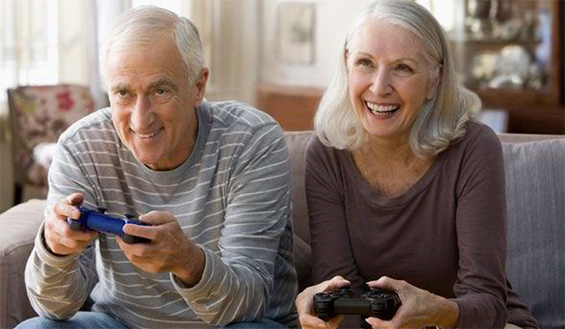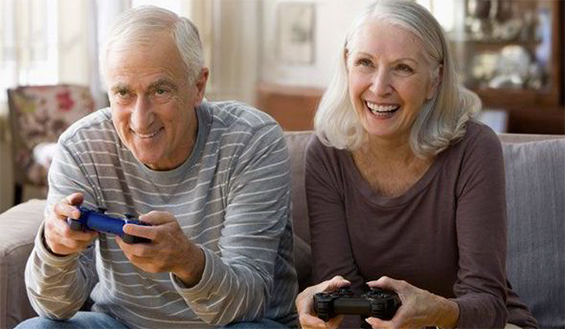
A recent study shows that video games designed to exercise the brain can significantly improve the cognitive abilities of those over 60, suggesting that well-designed brain training programs can improve the quality of life of the elderly.
Playing brain-teasing games regularly over the course of six months improved the abilities of older people to do everyday tasks. For people over 60, the games improved their abilities with tasks like shopping, making calls on the telephone, and using public transport. For people over 50, the study boosted their reasoning and verbal learning skills, according to Sky News.
Researchers at King’s College London conducted research on almost 7,000 people over 50 years of age. They were asked to play games designed to improve problem-solving and memory for ten minutes a day.
One group could play brain training games as often as they liked for ten minutes at a sitting. The control group did simple internet searches. None of the participants had known cognitive deficits or degenerative diseases when they took cognitive and daily skills tests before the study began. When they were retested after six months, those who played the games at least five times a week kept or improved their cognitive skills.
The study was part of BBC TV’s Bang Goes The Theory. The research builds on previous reports that show that those who engage in complex occupations or play puzzle games like brainteasers and crosswords tend to be less susceptible to dementia.
Dominic Harris of the Independent quoted Dr. Anne Corbet of the Wolfson Centre for Age-Related Diseases at the Institution of Psychiatry, Psychology & Neuroscience (IoPPN) at King’s College London:
The impact of a brain training package such as this one could be extremely significant for older adults who are looking for a way to proactively maintain their cognitive health as they age.
The online package could be accessible to large numbers of people, which could also have considerable benefits for public health across the UK.
The games included tasks like balancing weights on a virtual see-saw and putting numbered tiles in order, reports the Telegraph.
An earlier study by the same researchers showed that those under 30 did not benefit from the games. This result matches up with the complaints of detractors, who say that popular programs like Luminosity don’t do anything to increase skill or brain function.
The study was funded by the Alzheimer’s Society, which has also commissioned more research, along with the Medical Research Council and the BBC.
Dr. Doug Brown of the Alzheimer’s Society said:
While this study wasn’t long enough to test whether the brain training package can prevent cognitive decline or dementia, we’re excited to see that it can have a positive impact on how well older people perform essential everyday tasks.
Those over 50 are encouraged to participate in further studies by the group.




